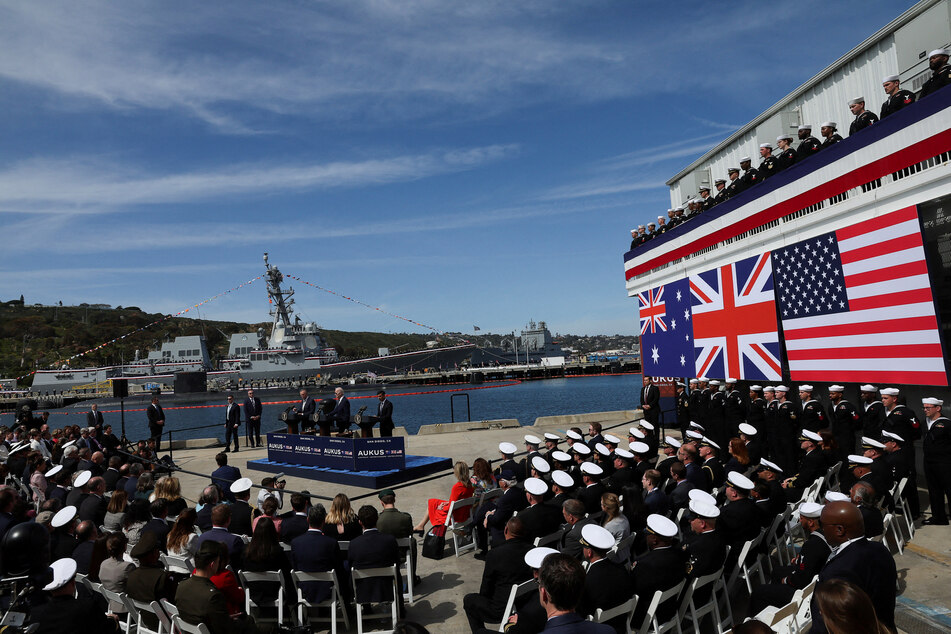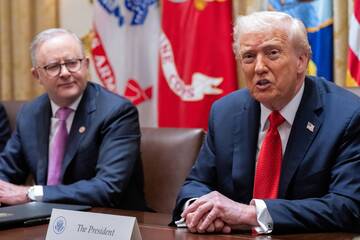Australia, US, and UK sign deal to boost building of nuclear-powered submarines
Sydney, Australia - Australia said Monday it had signed a deal to allow the exchange of nuclear secrets and material with the US and UK, a key step toward equipping its navy with nuclear-powered submarines.

It binds the three countries to security arrangements for the transfer of sensitive US and UK nuclear material and knowhow as part of the tripartite 2021 AUKUS security accord.
AUKUS, which envisages building an Australian nuclear-powered submarine fleet and jointly developing advanced warfighting capabilities, is seen as a means of countering Chinese military ambitions in the Pacific region.
"This agreement is an important step towards Australia's acquisition of conventionally-armed, nuclear-powered submarines for the Royal Australian Navy," said Richard Marles, Australia's defense minister and deputy prime minister.
Australia's acquisition of a nuclear-powered submarine fleet would set the "highest non-proliferation standards," he said, stressing that the country did not seek nuclear weapons.
The latest deal – signed in Washington last week and tabled in the Australian parliament on Monday – includes a provision for Australia to indemnify its partners against any liability for nuclear risks from material sent to the country.
Nuclear material for the future submarines' propulsion would be transferred from the US or Britain in "complete, welded power units," it says.
But Australia would be responsible for the storage and disposal of spent nuclear fuel and radioactive waste from the nuclear power units that are transferred under the deal.
"Submarines are an essential part of Australia's naval capability, providing a strategic advantage in terms of surveillance and protection of our maritime approaches," the transfer deal says.
China's foreign minister Wang Yi warned in a visit to Australia in April that AUKUS raised "serious nuclear proliferation risks," claiming it ran counter to a South Pacific treaty banning nuclear weapons in the region.
Cover photo: REUTERS
